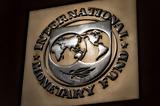Banking Risks in Albania Carry Greek Relevance
The IMF finds that Albania’s banks are generally well-capitalized, with an average capital adequacy ratio of 19.3 percent—substantially above the regulatory minimum of 12 percent.
Although Greek banks have withdrawn from the Albanian market in recent years, many Albanians who live permanently in Greece still maintain
In a newly released report assessing the condition of Albania’s banking sector, the IMF notes that the country has made significant progress over the last decade. Non-performing loans, which once made up about 25 percent of total loans in 2014, have dropped to under 5 percent as of the first quarter of 2024. The banking sector has also become less reliant on foreign ownership, with the share of foreign-owned banking assets falling from 90 percent in 2013 to 65 percent. This shift is seen as a positive step in reducing Albania’s vulnerability to financial shocks originating abroad.
The IMF finds that Albania’s banks are generally well-capitalized, with an average capital adequacy ratio of 19.3 percent—substantially above the regulatory minimum of 12 percent. Liquidity coverage also appears to be at acceptable levels, contributing to overall financial stability.
Despite these improvements, the IMF highlights several emerging risks. One of the most significant is the high level of exposure that Albanian banks have to government bonds. Albania ranks among the highest in Europe in this regard, and the IMF cautions that such a close link between banks and the state—often referred to as the "sovereign-bank nexus"—can amplify systemic risk. While government bonds are typically used as a reliable source of liquidity, the lack of a secondary market in Albania makes it uncertain whether banks could quickly sell these assets during times of financial pressure. This risk is somewhat mitigated by the ability of banks to access liquidity from the Bank of Albania, but the concern remains.
Another area of vulnerability lies in unhedged foreign currency loans, particularly those concentrated in the real estate sector. Over two-thirds of these loans are not protected against exchange rate fluctuations. With the real estate market seeing rapid credit growth and rising prices, the IMF warns that this could lead to heightened financial instability if market conditions shift.
The IMF also raises red flags about the banking system’s exposure to a small number of large borrowers. According to the report, if the two largest corporate clients of each bank were to default on their obligations, six banks—including one considered systemically important—would face capital shortfalls. The capital required to cover these losses would amount to approximately 0.5 percent of Albania’s GDP.
#ENGLISH_EDITION- Δημοφιλέστερες Ειδήσεις Κατηγορίας Ειδήσεις
- Περικλής Κονδυλάτος για Δανάη Μπάρκα: "Θεωρώ ότι το να τα φτιάξεις με τον πρώην μιας φίλης σου είναι ό,τι πιο απαράδεκτο"
- Ο αιφνιδιασμός Μητσοτάκη με τους χάρτες, η αμηχανία στα δεξιά της ΝΔ και το φάλτσο του Χρυσομάλλη
- Γαμπρός ταπεινώνει τη νύφη σπρώχνοντάς τη μέσα στην τούρτα – Έξαλλη η κοινή γνώμη με το έθιμο «cake smash»
- Θεσσαλονίκη: Έθαψε σωλήνα και έριχνε λύματα σε χείμαρρο που φτάνει στο Θερμαϊκό
- Διαβάστε στην Απογευματινή: Ελληνική γαλάζια πατρίδα με σφραγίδα ευρωπαϊκή ο Θαλάσσιος Χωροταξικός Σχεδιασμός - Σημαντικό βήμα που κλείνει εκκρεμότητες ετών
- Οι επιστήμονες βρήκαν ελπιδοφόρες πρώτες ενδείξεις για ύπαρξη ζωής σε μακρινό πλανήτη
- Το viral make up hack για να αποκτήσετε γαλλική μύτη που κάνει τους πλαστικούς χειρουργούς να χάνουν πελάτες
- Εγνατία Οδός: Δύο τραυματίες από το τροχαίο στην σήραγγα Δρίσκου -Κλειστό το ρεύμα προς Ιωάννινα
- Εορταστικό ωράριο Πάσχα: Ανοιχτά τα καταστήματα σήμερα - Η αλλαγή τη Μεγάλη Παρασκευή
- «Πού είναι η μαμά μου;»: Ανατριχιαστικό βίντεο από τη Γάζα την ώρα που οι διασώστες απεγκλωβίζουν κοριτσάκι από τα ερείπια
- Δημοφιλέστερες Ειδήσεις Dikaiologitika
- Μεγάλη Παρασκευή: Τι ώρα αύριο η περιφορά του Επιταφίου
- Πρωτομαγιά: Τι ισχύει με τη μεταφορά της αργίας 2025
- Το Δημόσιο αξιοποιεί θαλαμηγούς, ελικόπτερα, βίλες, Ferrari και μετρητά
- Κλέαρχος Μαρουσάκης: Μεγάλη Πέμπτη με 30αρια - Έρχεται κακοκαιρία μετά την Ανάσταση
- Τι καιρό θα έχει τη Μεγάλη Παρασκευή την ώρα του Επιταφίου
- NYT: O Τραμπ απέρριψε ισραηλινό σχέδιο για βομβαρδισμούς ιρανικών πυρηνικών εγκαταστάσεων
- Γιατί πρασινίζει ο κρόκος στα κόκκινα αυγά
- Ισραήλ: «Ουδέτερη ζώνη» το 30% της Γάζας - Μπλόκο σε κάθε ανθρωπιστική βοήθεια
- Οδηγίες ΕΟΔΥ για το Πάσχα: Τι να προσέχετε με το κρέας και τα αυγά
- Τι τρώμε σήμερα, Μεγάλη Πέμπτη

- Τελευταία Νέα Dikaiologitika
- Banking Risks in Albania Carry Greek Relevance
- Greece’s Finance Minister to Share Reform Lessons at IMF Spring Seminar
- Κίνδυνος μπλακάουτ το Πάσχα: Οι τελικές αποφάσεις
- Αποθέωση από τον κόσμο της ΑΕΚ παρά την ήττα (video)
- Greece’s Tax Revenues Grows - So Does Inequality
- Η Άρσεναλ πήρε το… στέμμα της Ρεάλ και «ονειρεύεται» Champions League! (video)
- Ελεύθεροι επαγγελματίες: Πώς και πότε θα καταργηθεί το τεκμαρτό εισόδημα
- Κτηματολόγιο: Στο metavoles.gr η διόρθωση λαθών και παραλήψεων
- ΟΠΕΚΑ: Η πληρωμή των επιδομάτων και η ευχάριστη αλλαγή
- Τελευταία Νέα Κατηγορίας Ειδήσεις
- Αλλάζει επίπεδο στρατηγικής η Κίνα - Πώς απαντά στον δασμολογικό πόλεμο του Τραμπ
- Τι καιρό θα κάνει το Πάσχα
- Μιανμάρ: Απελευθέρωση 4.900 κρατουμένων για το νέο έτος – Άγνωστη η τύχη των πολιτικών κρατουμένων
- Μπιμπίλας – Ευγενίδης: Καβγάς on air
- Ουκρανία: Τρεις νεκροί και 30 τραυματίες σε «μαζική επίθεση» της Ρωσίας στη Ντνίπρο
- Σε επείγουσα υγειονομική κατάσταση η Κολομβία: 34 θάνατοι από κίτρινο πυρετό
- Χάλεϊ Τζόελ Όσμεντ: Συνελήφθη σε χιονοδρομικό κέντρο ο ηθοποιός της «Έκτης Αίσθησης»
- ΗΠΑ – Γαλλία – Βρετανία: Τριμερής στο Παρίσι για την Ουκρανία
- Το αδιαχώρητο στα λιμάνια της Αττικής: Όπου... φύγει φύγει πάνω από 34.000 εκδρομείς του Πάσχα!



